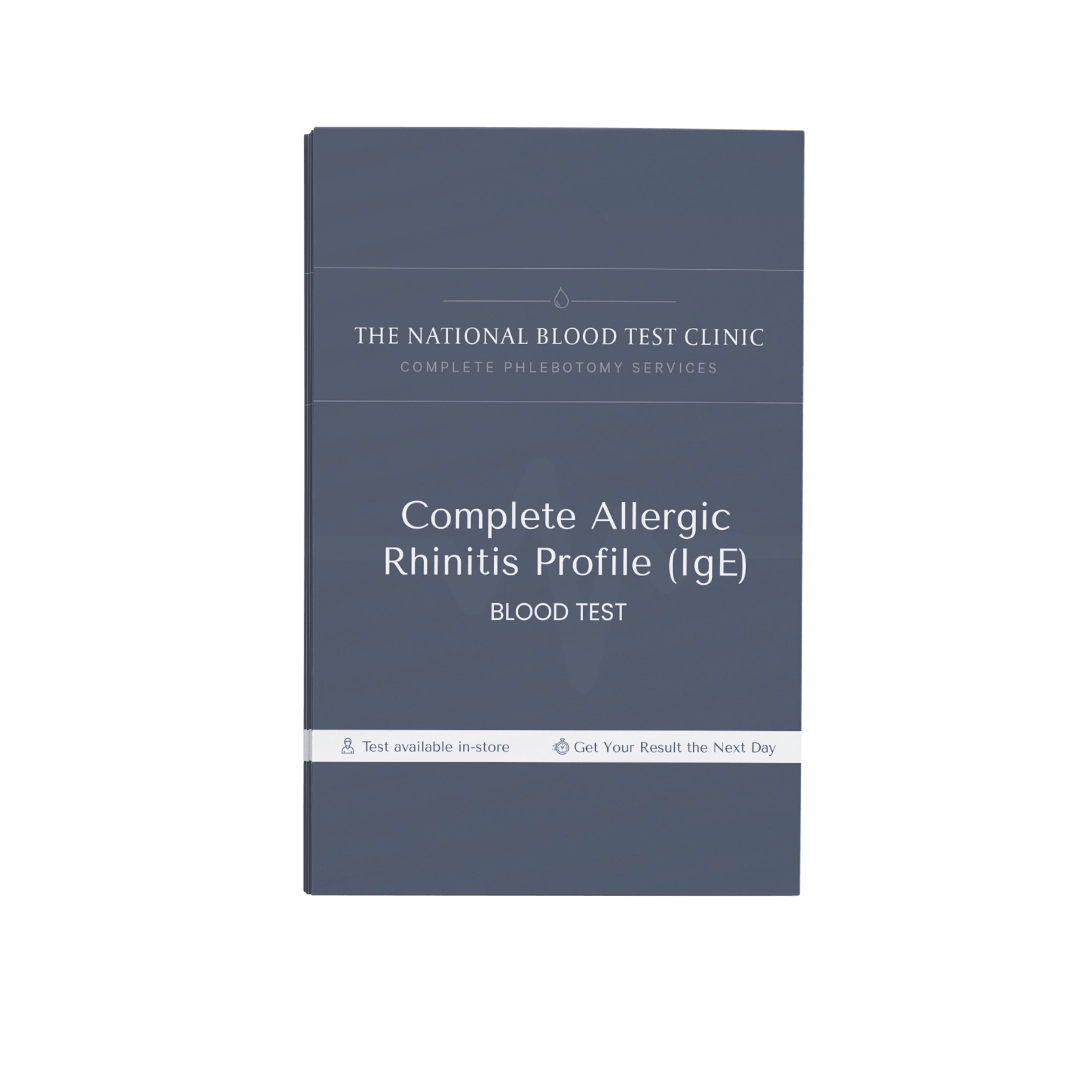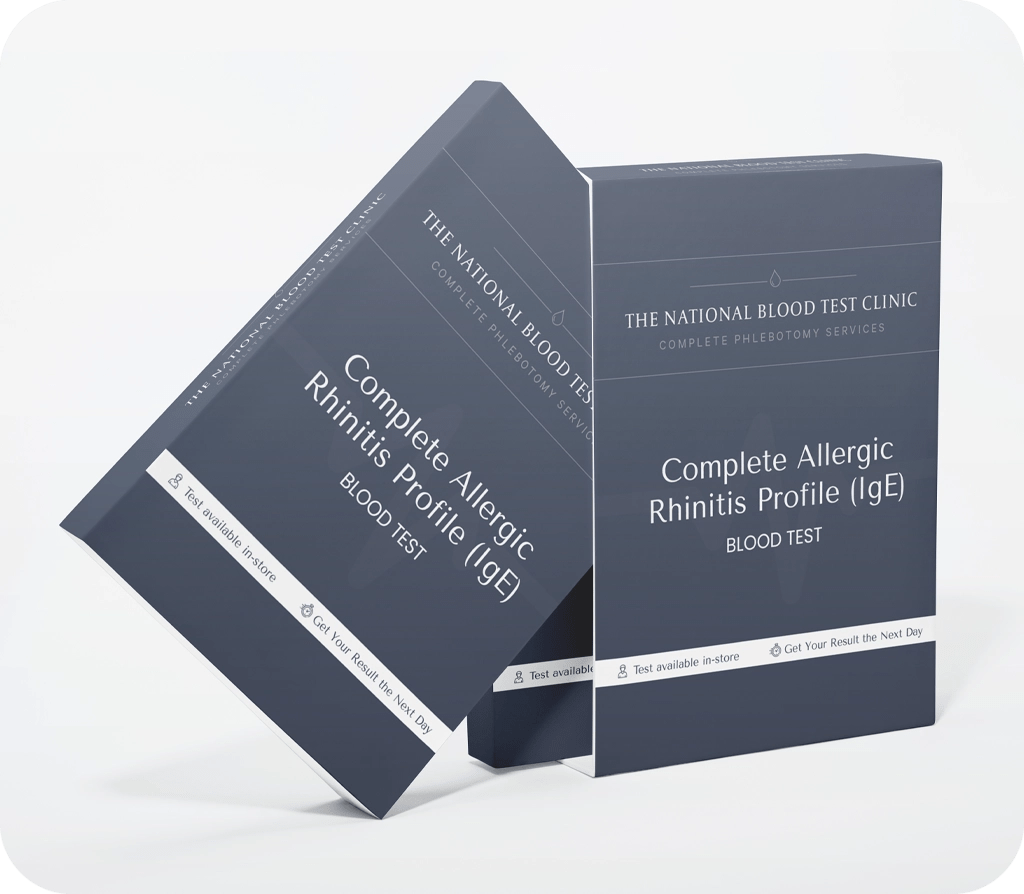My Store
Complete Allergic Rhinitis Profile (IgE)
Complete Allergic Rhinitis Profile (IgE)
SKU:ALL8
Frequent sneezing, nasal congestion, watery eyes, and itchy throat are common signs of allergic rhinitis, often triggered by food or environmental allergens. The Allergic Rhinitis Profile (IgE) helps identify sensitivities to common foods, pollens, and indoor allergens that may be contributing to ongoing allergy symptoms.
Why is an Allergic Rhinitis/Asthma Blood Test (IgE) needed?
Allergic rhinitis can significantly impact daily comfort, sleep quality, and productivity. Detecting specific allergens allows for targeted avoidance strategies and effective treatment planning. Early identification reduces flare-ups and helps improve long-term respiratory and immune health.
What Gets Assessed?
- Cow's milk
- Egg's white
- Peanut
- D. pteronyssinus
- D. farinae
- Alternaria alternata
- Timothy
- Cat (skin flakes)
- Dog (skin flakes)
- Common silver birch
Turnaround Time
- 7 Days
100 in stock
Visit a partner clinic (+£50)
Once you've ordered your test, look out for an email from our phlebotomy partners containing information and a link to book your appointment. We'll send you everything the clinic will need to complete the sample and post it back to our labs.
Organise a nurse yourself
If none of the above options work for you, you can arrange your own medical professional to collect your sample. There is no additional charge for this. Once you've ordered your test, we'll send you everything you and your chosen medical professional will need to collect a sample and post it back to our labs.
Couldn't load pickup availability
Enter Your Details
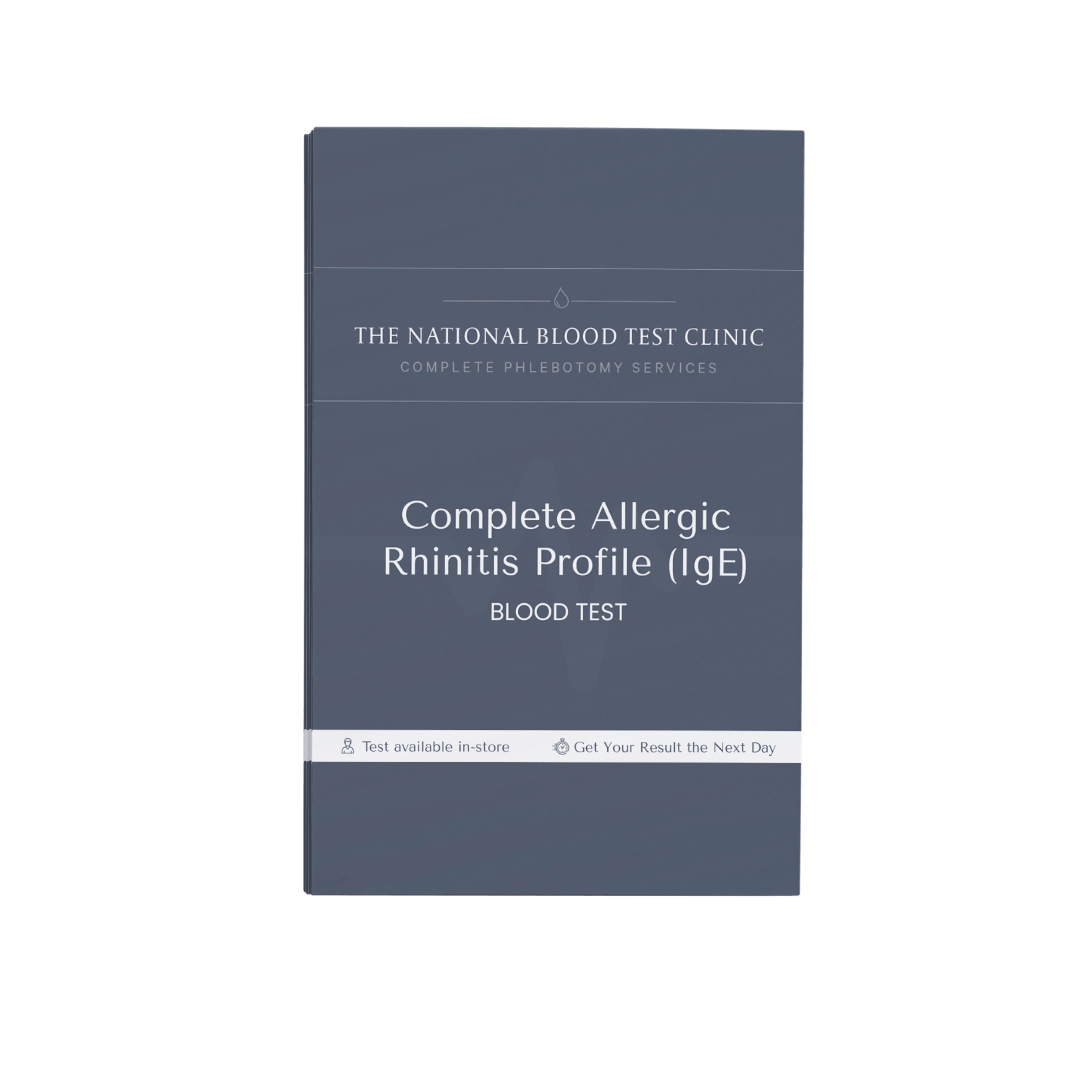
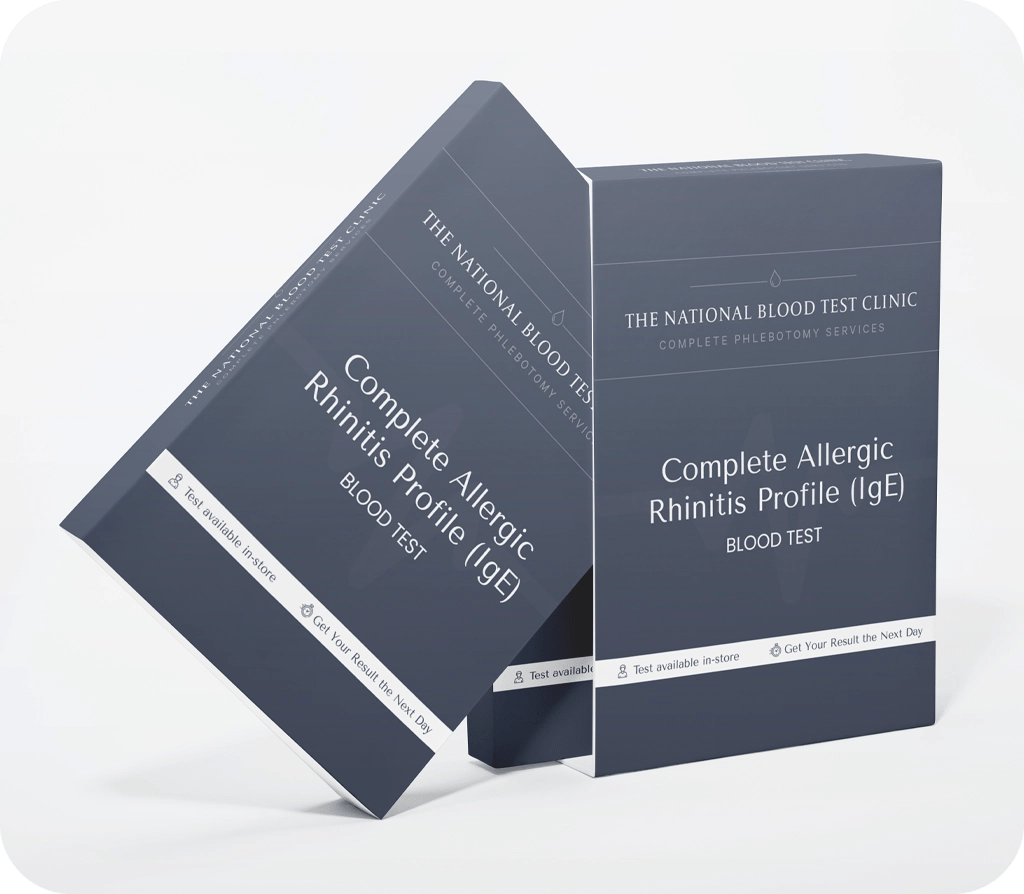
Visit a partner clinic (+£50)
Once you've ordered your test, look out for an email from our phlebotomy partners containing information and a link to book your appointment. We'll send you everything the clinic will need to complete the sample and post it back to our labs.
Organise a Nurse Yourself
If none of the above options work for you, you can arrange your own medical professional to collect your sample. There is no additional charge for this. Once you've ordered your test, we'll send you everything you and your chosen medical professional will need to collect a sample and post it back to our labs.
How Our Test Works
-

Place Your Order
Place your order online and receive a test kit delivered to your home. You’ll need to bring this kit with you to your scheduled appointment at one of our partner blood collection clinics.
-

Attend Your Appointment
At your chosen clinic, a trained nurse or phlebotomist will collect your blood sample using the kit you bring. If a sample collection courier is not available at the site, you’ll be asked to take the sealed sample with you and post it using the prepaid packaging provided.
-
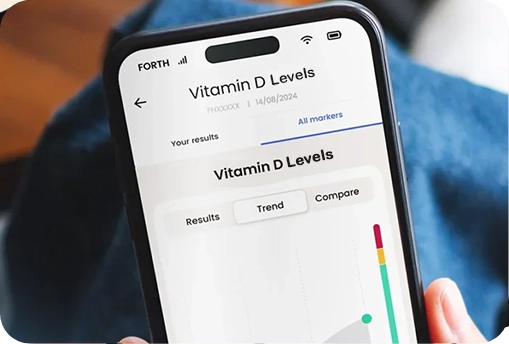
Receive Your Results
Once your results are ready, you’ll receive an email notification to log in and view them securely via your private portal. Please note: venous blood test results are not automatically reviewed by a doctor. We recommend booking a consultation with a qualified clinician to help you interpret and understand your results fully.
FAQs
Who should consider this test?
Individuals with symptoms such as sneezing, runny or blocked nose, itchy eyes, or breathing difficulties that may be linked to food or environmental allergens should consider this test.
How is the test performed?
A simple blood sample is taken to measure IgE antibody levels against common allergens that can trigger allergic rhinitis.
What allergens are tested?
This panel includes cow's milk, egg white, peanut, house dust mites (D. pteronyssinus and D. farinae), mould (Alternaria alternata), grass pollen (Timothy), cat dander, dog dander, and common silver birch pollen.
What do the results indicate?
Results show IgE antibody levels for each allergen, highlighting which triggers are most likely causing allergic rhinitis symptoms.
How can this test help?
Identifying specific allergens helps in managing exposure, planning treatment with antihistamines or immunotherapy, and making lifestyle or dietary changes to reduce symptoms.
Subscribe to our emails
Be the first to know about new collections and exclusive offers.

